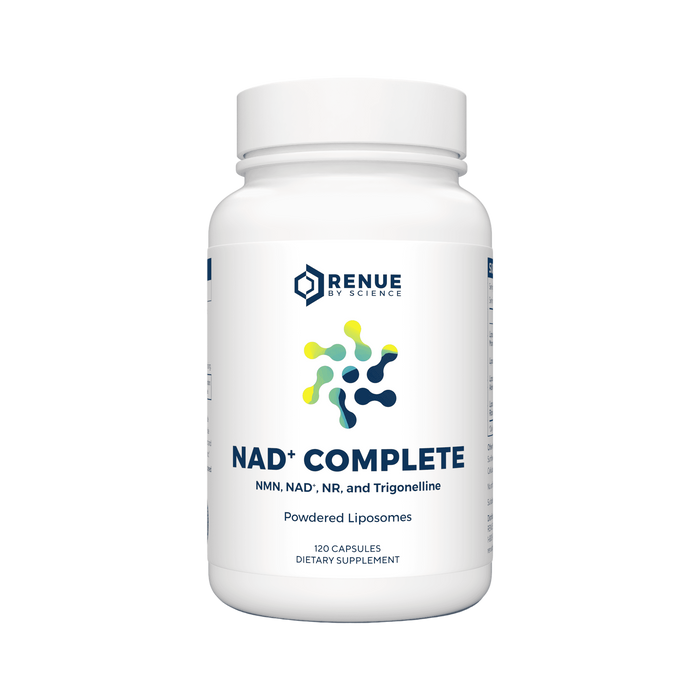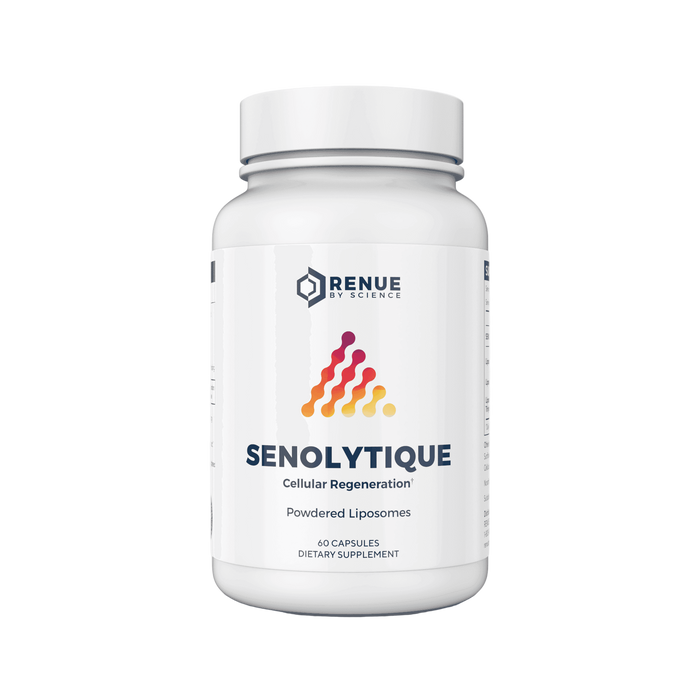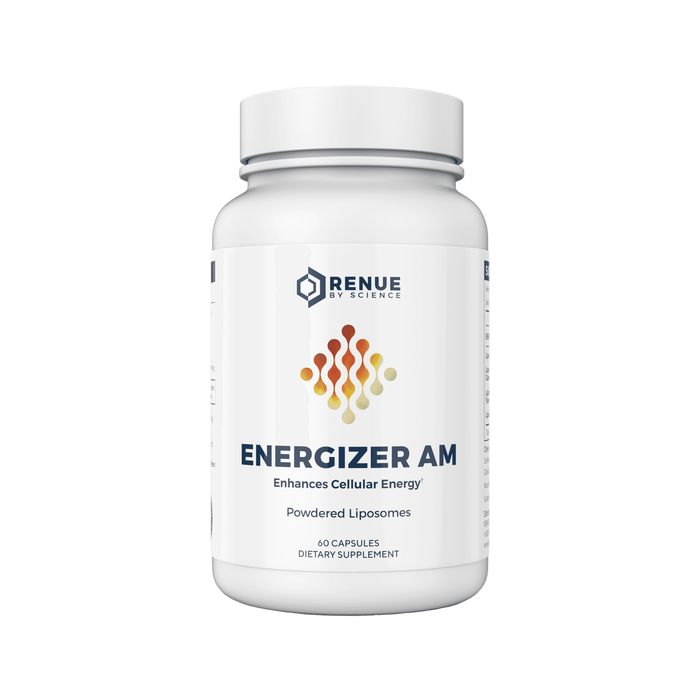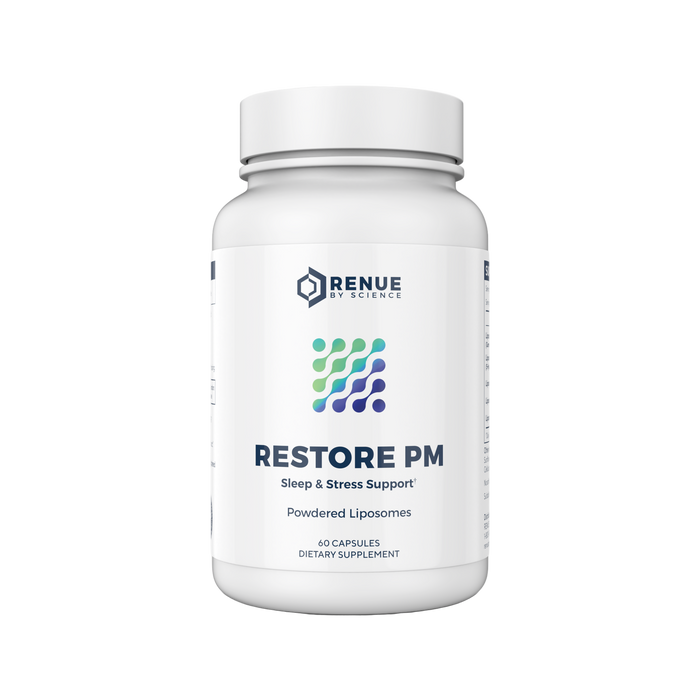
Is it just aging, or are your NAD+ pathways slowing down?
When one pathway stalls, your energy suffers.
NAD+ is essential for energy, repair, and resilience. As we age, NAD+ synthesis pathways slow down, leading to a dramatic drop in cellular energy. By age 50, we have half of what we did when we were younger. Factors like poor diet, sedentary lifestyles, illness, and environmental toxins deplete NAD+ even faster.
Our scientifically designed multi-pathway formulas restore NAD+ where your biology needs it most.
NAD+ (nicotinamide adenine dinucleotide) is a coenzyme found in every cell of your body. If you ran out, your body would stop working – within seconds. It fuels the enzymes responsible for DNA repair, energy production, cellular stress response, and gene expression. Without it, your cells can’t function, adapt, or repair themselves.
As you age, your NAD+ levels drop up to 50% by age 50, and even more in tissues under metabolic stress. This decline isn’t just a side effect of aging: it’s a driver of it.
What it targets: Low cellular NAD⁺.
How it works: Supplies precursors that feed the body’s NAD⁺-making routes so more raw NAD⁺ is available when cells need it.
Includes: NMN, NR, Trigonelline, and direct NAD⁺.
Why it matters: A higher, steadier supply supports daytime energy metabolism and cell maintenance.
What it targets: Unnecessary NAD⁺ drain from inflammatory signaling and overactive NAD⁺-consuming enzymes.
How it works: Senolytic and polyphenol support helps lower senescent-cell burden and modulates enzymes like CD38 and PARPs, conserving NAD⁺ for useful work.
Includes: Fisetin, Quercetin, Apigenin, Hesperidin.
Why it matters: Less waste means more NAD⁺ available for repair, resilience, and metabolism.
What it targets: Sluggish mitochondrial output and metabolic inflexibility.
How it works: Activates cellular switches (AMPK, SIRT1/3) and supports electron transport so cells convert fuel to ATP more cleanly.
Includes: Resveratrol, Berberine, EGCG, CoQ10, CaAKG.
Why it matters: Better utilization turns a steady NAD⁺ pool into steady energy and recovery.
What it targets: Buildup of worn-out components and poor overnight recovery.
How it works: Encourages autophagy/mitophagy and calm sleep architecture so cells can recycle and rebuild while you rest.
Includes: Spermidine, GABA, 5-HTP, Apigenin.
Why it matters: Cleaning and rebuilding at night sets up stronger NAD⁺ dynamics the next day.

The cellular energy crisis.
Why Modern Life Destroys NAD+:
- Blue light exposure disrupts circadian .NAD+.
- Processed foods are inflammatory and increase CD38.
- Chronic stress means constant repair demand.
- Sedentary lifestyle damages mitochondrial function.
- Poor sleep shortens or eliminates nightly recovery window.
- Alcohol detoxification depletes NAD+ stores.
The mismatch: Your body expects feast/famine cycles, sunrise/sunset rhythms, and physical demands. Instead, it gets constant food, artificial light, and Netflix.
The solution: Since we can't live like our ancestors, we need to supplement what modern life depletes.
The functional cost of NAD+ loss.
YOU MAY NOT SEE NAD+ LEVELS DECLINE, BUT YOU CAN FEEL THE CONSEQUENCES.
Fatigue and poor recovery
Brain fog and forgetfulness
Weaker immunity
Slower repair and regeneration
NAD+ powers cellular energy production and overnight recovery. Low NAD+ means workouts drain you for days and sleep doesn't restore you.
NAD+ powers cellular energy production and overnight recovery. Low NAD+ means workouts drain you for days and sleep doesn't restore you.
Evidence for the four-pathway approach.
We analyzed hundreds studies and found:
- Multiple precursors work better:Different cells prefer different NAD+ builders.
- CD38 is the hidden problem: It increases with age, eating your NAD+.
- Mitochondria need support: Better efficiency = less NAD+ waste.
- Sleep is when repair happens: Poor sleep = higher NAD+ demand.
Key Studies:
- NMN improves insulin sensitivity (Science, 2021)
- Quercetin inhibits CD38 (Diabetes, 2013)
- Resveratrol enhances mitochondria (Cell Metabolism, 2011)
- Spermidine activates autophagy (Nature Medicine, 2016)
Taking NMN or NR alone is like filling a bucket with holes in it. Sure, you're adding NAD⁺ to your system by taking a precursor, but you're not addressing the enzymes like CD38 literally eating your NAD⁺ faster than you can make it, the inflammation driving those enzymes higher, the inefficient mitochondria wasting what NAD⁺ you do have, or the cellular damage creating constant NAD⁺ demand.

Individual responses vary widely to NAD precursor supplementation.
While some people feel great from taking NMN, others may feel a small difference or nothing at all. This is why the 4 pathway approach works: we account for individual variation in precursor response so you can experience the benefits of boosting your NAD+ levels without having to guess which form will work best for you.
This graph shows the NMN Group (red triangles) overall had higher NAD+ levels compared to the Placebo Group (blue circles) at weeks 4 and 12.
However, individual responses varied (red triangles show a range from 25 to 90 µM).
Myth 1: "More is Better"
Reality: Pathways saturate. 1000mg isn't better than 500mg if your salvage pathway is full.
Myth 2: "NAD+ Can't Be Absorbed Orally"
Reality: Precursors like NMN and NR are absorbed. New liposomal tech enables direct NAD+ absorption.
Myth 3: "IV NAD+ is Superior"
Reality: IVs create spikes that fade in days. Daily oral creates sustained levels. (Plus IVs cost $500+ per session)
Myth 4: "Young People Don't Need It"
Reality: NAD+ starts declining at 30. Prevention is easier than restoration.
Myth 5: "It's Just Expensive Vitamin B3"
Reality: While related, NMN and NR use different pathways than niacin and don't cause flushing.
NAD+ myths debunked.
What the Internet Gets Wrong.
Longevity foundations.
WE COMBINE INGREDIENTS PROVEN TO IMPACT YOUR NAD⁺ LEVELS THROUGH FOUR MAJOR PATHWAYS.
NAD+ Complete
Senolytique
Energizer AM
Restore PM
The science behind NAD+.

How to choose the best NMN for you.

Updated NMN Human Trials

The future of NAD⁺ research.























